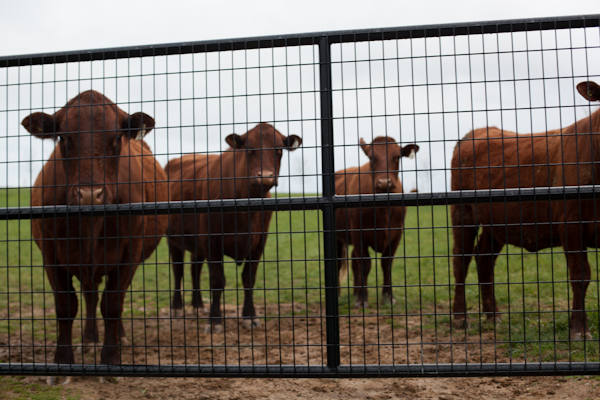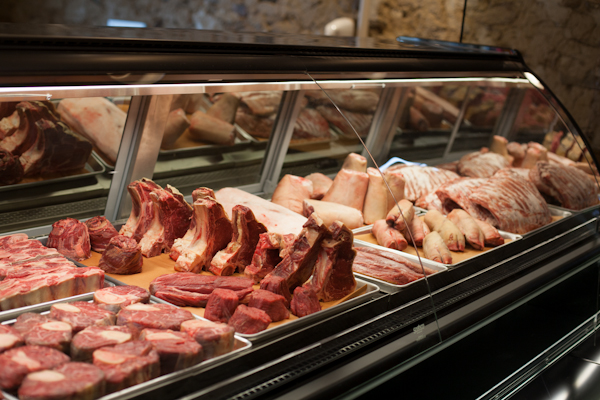Dean Carlson of Wyebrook Farm kicked off an exciting collaboration with COOK this month to connect Philadelphia food-lovers with sustainable meat, produce, and dairy products from Chester County. COOK’s own Audrey and Lily had the pleasure of touring the farm in late April and welcomed Farmer Dean and his chef Janet Crandall for a pork-centric class at COOK last week featuring that fine looking porchetta.
COOK caught up with Dean to learn more about his journey from city-dweller to sustainable farmer.
You left Wall Street after many years to start a sustainable farm. What’s the story behind that?
I had been looking at farmland as an investment. Our population continues to increase, but arable land is decreasing because of erosion and poor farming practices. I put the idea on the back burner until I first learned about sustainable agriculture after reading Michael Pollan’s book The Omnivore’s Dilemma. At first it struck me as a way to put into practice my investment idea, but there’s so much more to it. It’s about making food that’s nutritious, tasty, and better for the environment and for the community. With food produced through sustainable agriculture, it’s just the up-front cost that’s higher; with industrially produced food, you pay the price later.
Some critics of the sustainable agriculture movement argue that small-scale polyculture farms can never replace large-scale industrial agriculture in our food supply chain. How would you respond to those critics?
Sustainable farming is going to be successful for economic reasons, not just because it’s a cute niche product. Industrial agriculture is premised completely on cheap oil, which is a bad business because as soon as oil prices go up, the conventional agriculture model is going to implode. All food will be local if oil costs $500 a barrel—we won’t be shipping food across the country anymore. The true cost of industrial agriculture is hidden; it’s subsidized by the government. Now the cost is also becoming apparent in health care spending. Thirty years ago, Americans spent 15% of GDP on food and 10% on health care; now we spend 9% on food and 17% on health care. The other cost is damage to the environment. In economics, these costs are called externalities, and they’re not in the price of the food.

How have you succeeded in connecting Wyebrook with your customers?
All I’m trying to do is provide an alternative to industrial food. There’s already a percentage of people out there who are looking for such an alternative, so at this point I really don’t have to convert anyone—I just have to get the word out about it.
What’s your single favorite food product from Wyebrook?
There are so many! Probably the pork. There are so many differences between the breeds, and the taste of the meat also depends on the feed you give the pigs. We have all heritage breeds, and we’re doing some cross-breeding. It’s interesting to see how different their characteristics, such as fat levels, can be.

In your opinion, what’s the best part about running Wyebrook?
The fun part is simply providing food to people. One of the coolest things is watching the people who come here to the farm, who are searching for a connection to their food. We just had our first market last weekend—we had over 500 people on Saturday, and about a third as many on Sunday. I want people to wander around and see the animals and the environment in which they are raised. Food labels can be false; the real way to connect with your food is to use your eyes.
What do you hope to achieve through your collaboration with COOK?
I look at it as a way to spread the word about the place. I just want people to know about the farm and about sustainable agriculture, because people are looking for this kind of thing.
Wyebrook Farm’s market is open Saturdays from 9 AM to 5 PM and Sundays from 11 AM to 5 PM. The farm also has a café with a full commercial kitchen serving sandwiches and other dishes using ingredients from Wyebrook and other local farms. www.wyebrookfarm.com




